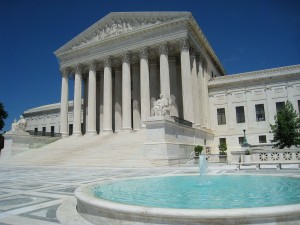Debunking the Process of Federal Appeals: What You Need to Know
Navigating the detailed world of federal allures can typically appear like going across undiscovered waters for those unfamiliar with the process. Comprehending the subtleties of appellate court territory, the intricacies of filing a notice of charm, providing an engaging quick, and making an influential oral argument are important elements that can substantially influence the end result of an instance. By unraveling the layers of complexity surrounding federal appeals, individuals can gain a clearer insight into the mechanisms that control this crucial stage of the legal system.
Recognizing Federal Appeals Refine
Diving right into the detailed world of the government charms process unveils a structured and methodical journey through the judicial system - federal appeal lawyers in maine. Federal appeals offer as a crucial mechanism for examining choices made by lower courts. Recognizing this process is vital for anyone associated with lawful proceedings at the federal degree
The procedure generally starts with an event dissatisfied with a lower court's ruling submitting a notification of appeal. This activates a testimonial by a higher court, where a panel of judges examines the lawful debates presented by both celebrations. Briefs detailing the lawful thinking behind each party's position are submitted, and dental debates might be heard to clarify complex issues.
The appellate court's decision is based on a complete assessment of the reduced court's process and the debates provided. When the appellate court reaches a decision, it can attest, reverse, remand, or modify the reduced court's judgment, offering clarity and finality to the lawful conflict.
Appellate Court Jurisdiction Explained

Appellate courts have territory over details kinds of cases, typically those entailing lawful errors, procedural concerns, or concerns of law as opposed to valid conflicts. The jurisdiction of appellate courts is usually detailed in statutes and regulations that regulate the court system. Understanding appellate court territory is important for parties entailed in the charms procedure as it figures out whether a case is qualified for review and the level to which the appellate court can interfere in the lower court's choice.
Filing a Notice of Appeal
The first action in commencing the federal allures process entails filing a Notification of Appeal with the ideal appellate court. phoenix federal crime appeal lawyers. This vital record officially alerts the court and the various other celebrations included in the situation that the appealing celebration means to seek a review of the lower court's choice. Submitting a Notification of Charm is a stringent procedural requirement that establishes the appellate procedure moving
When preparing the Notification of Charm, it is vital to guarantee compliance with the specific regulations and standards of the appropriate appellate court. The file should generally consist of information such as the case name, the reduced court's name, the date of the judgment being appealed, and a concise declaration suggesting the grounds for the appeal.
When submitting a Notice of Charm,Timeliness is of the essence. Missing the due date for submitting this record can lead to the appeal being dismissed, highlighting the relevance of prompt and accurate initiation of the charms process. It is recommended to look for lawful advice to browse the complexities of submitting a Notice of Charm effectively.
Briefing and Dental Debate
In the appellate process, offering written briefs and taking part in oral debates play crucial functions in supporting for the appealing party's position before the appellate court. Briefs are comprehensive legal records that detail the parties' disagreements, legal authorities, and analysis sustaining their positions. These composed entries provide the court with a thorough understanding of the truths of the case, the appropriate regulation, and why the appealing party believes the reduced court's choice ought to be reversed.
Adhering to the entry and evaluation of the briefs, oral debates supply the events a possibility to more clarify their positions, deal with any type of inquiries the appellate courts may have, and highlight crucial factors from their created briefs. Oral arguments are a possibility for the attorneys to convince the courts via spoken advocacy and reactions to queries from the bench.

Getting the Appellate Court Decision

Final Thought
Understanding the appellate court territory, filing a notice of appeal, preparing briefs, and providing oral disagreements are all important elements of this process. Eventually, receiving the appellate court choice can give clarity and resolution to lawful disagreements.
As we progress from understanding the federal appeals process to dissecting the complexities of appellate court jurisdiction, an essential element comes to light relating to the authority and limitations of these higher courts in the lawful landscape. Appellate court territory refers to the extent of cases that a particular appellate court has the power to choose and assess upon. Unlike trial courts that hear instances for the initial time, appellate courts are restricted to examining decisions made by lower courts. Understanding appellate court territory is crucial for events entailed in the appeals procedure as it determines whether a situation is like this qualified for review and the degree to which the appellate court can interfere in the reduced court's decision.
Whether the appellate court affirms, turns around, or remands the reduced court's decision, recognizing the effects of the ruling is essential for all parties included in the appellate procedure.
Comments on “Leading Federal Appeal Attorneys: Your Companions in Navigating the Appeals Process”